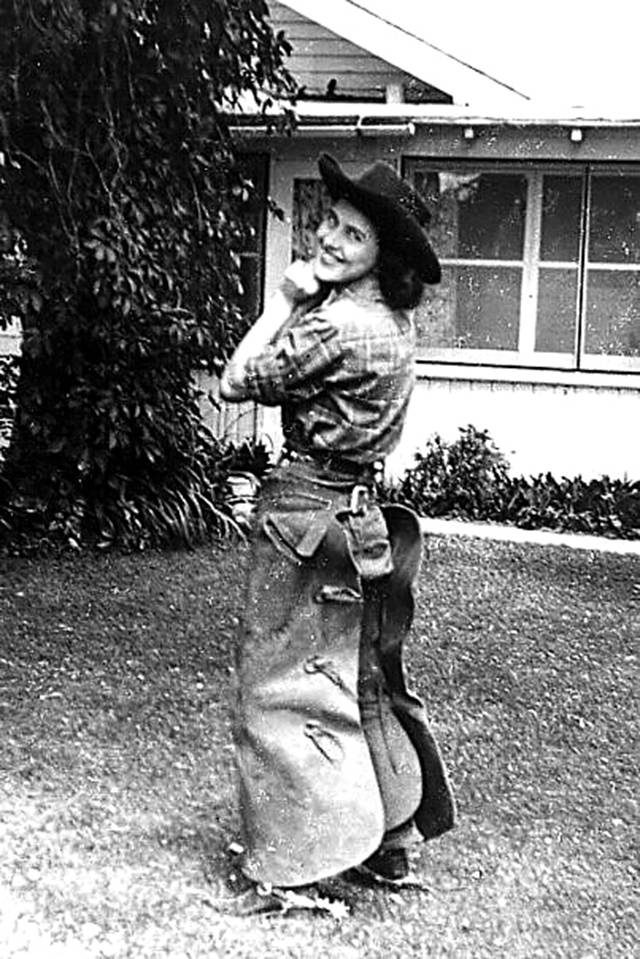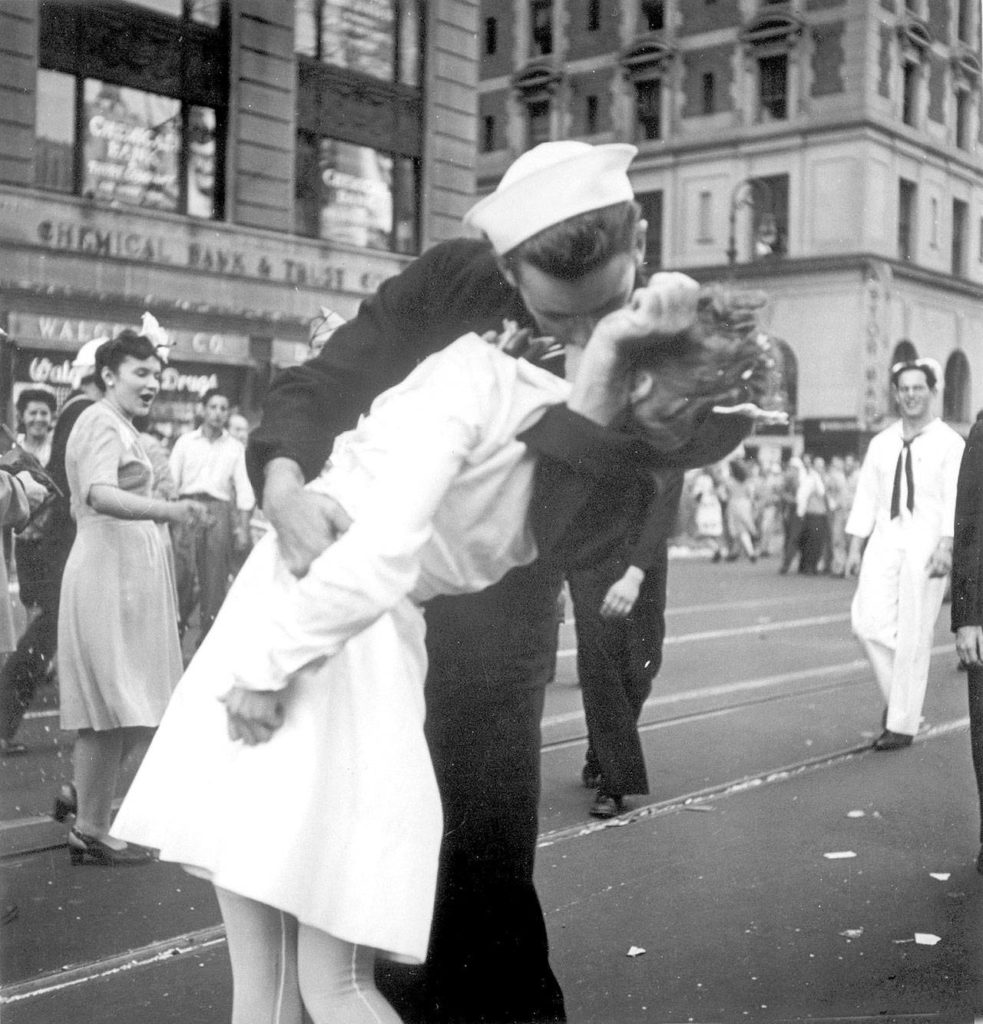Sailors in the streets, mill whistles blowing, “sheer bedlam” witnessed by a teenage girl who’d gone with her sister to see a movie. The memory of Aug. 14, 1945 — the day Americans learned of Japan’s surrender that would end World War II — comes back in an instant for Dorothy Jean Schroeder.
On Friday, it will be 75 years since Schroeder, then 17-year-old Dorothy Gemmer, and her younger sister June came to Everett to shop. With time to kill before they could catch a ride home to Machias, they went to see “Hotel Berlin” at the Everett Theatre. They were watching the “B” feature, which she recalls as “a typical second-rate musical with Desi Arnaz,” when Schroeder said a sailor appeared in the darkened theater and yelled “Hey, the war’s over.”
Her story might seem familiar. In her own words, Schroeder’s recollections were published on the front page of The Daily Herald on Aug. 14, 1995, the 50th anniversary of that momentous day. Twenty-five years later, at 92, she’s still telling the story.
“I just love history,” said Schroeder, author of “Pilchuck Valley Reflections.” Published in 2012, her book is subtitled “A chronicle of two pioneer families, the Gemmers and the Thomas family.”
“What makes it especially interesting, Mom was keeping a journal,” Schroeder said Monday from her home in Quincy, in Central Washington. A widow for 19 years, Schroeder’s husband Ken had a farm in the Columbia Basin.
Because of her mother’s diary, those August days so long ago “are brought to life again as if it were only yesterday,” she wrote in the 1995 article.
Her mother, Lorus Gemmer, had been a teacher in a one-room schoolhouse west of Lake Roesiger. The journal chronicled the family’s war years, from the 1941 Pearl Harbor attack to August 1945, when her mother wrote: “Dorothy and June described the celebration in Everett. I never saw Dorothy so excited!”
At the theater, hearing that sailor shouting about the war’s end, “we thought he was kidding,” Schroeder said. Soon, they knew it was so. She recalled horns honking, people “shrieking with joy,” and “gobs of sailors.”
Her 1995 article described a massive traffic jam, with Everett streets “already deep with ticker tape,” and those sailors, apparently from a ship dry-docked here, “hugging and kissing all the young women.”
She and June, then a Snohomish High freshman, knew they should hurry home to Machias. They caught a bus to the east end of the Hewitt Avenue trestle, and then a ride home with boys they knew from Lake Stevens.
Edward Gemmer, Schroeder’s father, was a foreman with the Monroe Logging Company. During the war, he only drove home from the logging camp a few times a month. Schroeder said although he had a “top-priority” gas-rationing card, he saw it as his patriotic duty to save fuel.
On that August afternoon in ’45, just before Dorothy started her senior year at Snohomish High, she and June had gotten a ride into Everett from a neighbor. Little more than a week earlier, on Aug. 6, 1945, the United States dropped the atomic bomb that devastated Hiroshima. Three days later, Nagasaki was the target of a second A-bomb.
Rumors of a Japanese surrender were flying. The anticipation made it into Lorus Gemmer’s diary. On Aug. 13, ’45, she wrote: “Everyone is still sitting by his radio, waiting to hear about the Japanese surrender, but it takes time … ” The following day, the journal begins simply with “Not today.”
Like so many thousands of families nationwide, theirs was deeply affected by war.
One of Schroeder’s brothers, Quenton, was with the U.S. 3rd Army, still in France with the Army of Occupation that summer. Another brother, Daryl, was home from duty in the Pacific. He suffered from malaria. An older sister, Millie, was working in Everett for Boeing and would soon leave for Washington State College in Pullman.
The war’s official end would come Sept. 2, 1945, when Japan formally surrendered aboard the USS Missouri in Tokyo Bay.
Schroeder graduated from Snohomish High in 1946. Three days later, her family moved to Soap Lake to run a tourist destination that had cabins. Recalling that she saw President Harry Truman when he came in 1950 to dedicate the Grand Coulee Dam, she said “everybody yelled, ‘Give ‘em hell, Harry.’”
In her long life, she raised a son and two daughters. She has 10 grandchildren and 16 great-grandchildren.
She remembers the “date which will live in infamy” in clear detail. “I was 13. I was making cupcakes from scratch,” said Schroeder, recalling Dec. 7, 1941, and how she learned of the attack on Pearl Harbor. “Aunt Daisy called. Radio was big then, there was no TV.”
Already, her brother Daryl, who died in 2006, had falsified his age and joined the National Guard in Everett. By 1940, he had been mobilized with the 161st Infantry Regiment and would go on to serve in the battle of the Solomon Islands.
Schroeder can’t forget a community’s joy when the war ended, nor the sacrifices made. It was a lifetime ago. Still, the name of a sailor from Snohomish who served aboard the USS Arizona comes easily. Seaman 1st Class Robert Erickson was lost at Pearl Harbor.
Julie Muhlstein: 425-339-3460; jmuhlstein@heraldnet.com.
Talk to us
> Give us your news tips.
> Send us a letter to the editor.
> More Herald contact information.


























